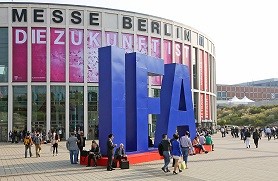The strong presence of China-made consumer electronics and home appliances in the European market was seen at the recent IFA 2015, the world's leading trade show held from Sept. 4-9, 2015, in Berlin, the Want China Times reported.
One of the participants, a representative of a Chinese smart bicycle manufacturer, told the Chinese tech website Zhidx.com that the European market is bigger and has a more responsive consumer base. He added that European consumers are also more mature and conscious than the local consumers.
The representative added that it is much easier to introduce a new concept or product to European consumers, compared to the Chinese market where consumer value is low. He said that in China, smart bicycles are regarded as more of a leisure item than a method of transportation.
The report said that Chinese brands are gaining a greater profile in Europe, despite the perception of some European consumers that products made in China are cheap and lacked creativity.
However, this perception changed with the product quality and brand awareness to Chinese companies such as Huawei and ZTE.
The representative cited Huawei's flagship Mate S smartphone, which was unveiled at this year's IFA. The gadget is being sold for 649 euro ($725) for the standard version and 699 euro ($780) for the premium version, both higher than the Mate 7, which cost 499 euro ($555) at last year's IFA.
According to the report, some Chinese companies now are encouraged to compete for a position in the higher end of the market.
The report, however, said that Chinese smart hardware companies still have to hurdle some issues. First, Chinese companies have to address patent issues that giant companies like Apple and Samsung may bring against them.
Second is the distribution channel in Europe that Chinese firms must set up and the costly after-sales services.
The third is localization or the issue of how to establish an ecosystem for local service providers.



























